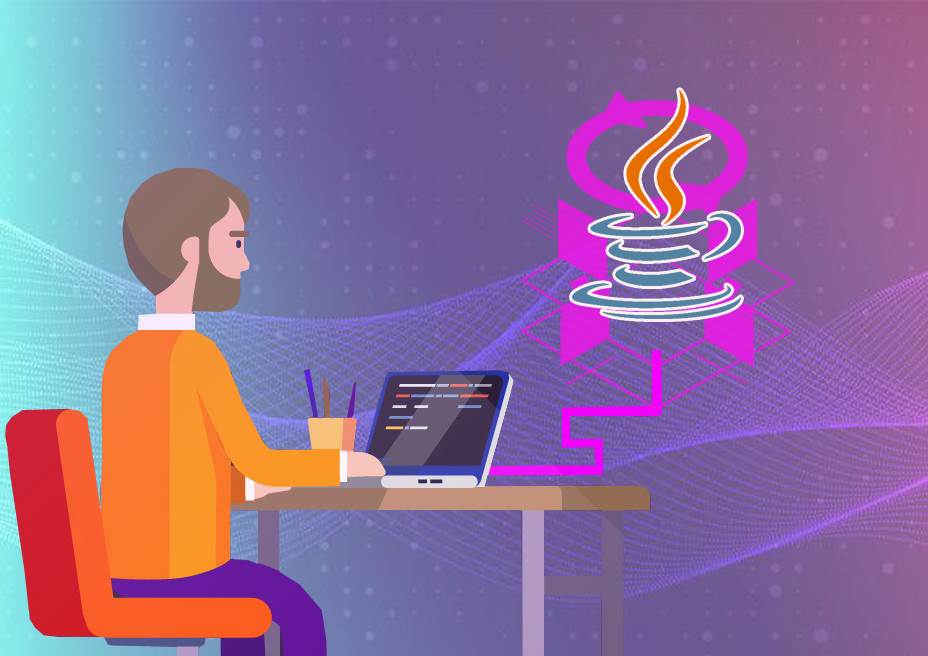Java Developer Job Description: Role and Responsibilities

Are you interested in a career as a Java Full Stack Developer? Look no further as we explore the fascinating world of this role, its responsibilities, and what it entails. A Java Full Stack Developer is a professional well-versed in front-end and back-end technologies, utilizing the Java programming language for seamless web development. They have the skills to handle database management, server-side development, and user interface creation. This introduction explores the core responsibilities and key attributes required for this position, highlighting the growing demand for Java Full Stack Developers and the benefits of pursuing a comprehensive Java Full Stack Developer course.
Java Developer Job Description
A Java Developer is highly qualified and responsible for designing, developing, and maintaining Java-based applications. Web and mobile applications are becoming more popular, and Java developers are in high demand in the software industry. This article will outline the job description of a Java Full Stack Developer and discuss the essential skills required to excel in this role. It will also highlight the significance of a Java Full Stack Developer course in acquiring the necessary expertise.
Job Description of a Java Full Stack Developer:
- Application Development: Java Full Stack Developers are involved in the complete lifecycle of application development. They collaborate with cross-functional teams to gather requirements, design software architecture, develop code, and implement robust solutions using Java and related technologies.
- Front-End Development: Java Full Stack Developers have proficiency in technologies used for front-end development, including HTML, CSS, and JavaScript frameworks (e.g., Angular, React). They leverage their skills to create user interfaces that are easy to use and visually beautiful and improve the user experience.
- Back-End Development: Java Full Stack Developers are experts in server-side programming using Java. They develop scalable and efficient back-end systems, handle data persistence with databases (e.g., MySQL, Oracle), and design APIs to communicate seamlessly between the front-end and back-end components.
- Database Management: Java Full Stack Developers possess knowledge of database concepts and are proficient in SQL. They develop and optimize database schemas, write efficient queries, and ensure data integrity and security.
- Testing and Debugging: Java Full Stack Developers are responsible for writing unit tests and performing debugging to identify and fix software defects. They conduct thorough testing to ensure the functionality, performance, and reliability of the applications they develop.
- Version Control and Collaboration: Java Full Stack Developers utilize version control systems like Git to manage source code and communicate with other team members effectively. They actively participate in code reviews, provide constructive feedback, and maintain high coding standards.
- Continuous Integration and Deployment: Java Full Stack Developers employ continuous integration and deployment practices to automate the software build, testing, and deployment processes. They use tools like Jenkins or GitLab CI/CD pipelines to streamline the development workflow.
- Problem Solving and Troubleshooting: Java Full Stack Developers possess strong analytical and problem-solving skills. They are adept at identifying and resolving technical issues, optimizing application performance, and ensuring the smooth operation of software systems.
Importance of Java Full Stack Developer Course:
To excel as a Java Full Stack Developer, acquiring comprehensive knowledge and hands-on experience with Java and its related technologies is crucial. Enrolling in a Java Full Stack Developer course offers several benefits:
- Comprehensive Curriculum: A Java Full Stack Developer course discusses a variety of subjects, including Java programming, front-end development, back-end development, databases, testing, and deployment. It provides a holistic understanding of the technologies and tools required to excel in this role.
- Practical Experience: These courses often include hands-on projects and real-world scenarios to provide practical experience. Participants gain proficiency in developing end-to-end applications using Java and associated frameworks through these projects.
- Industry-Relevant Skills: Java Full Stack Developer courses are designed to align with industry standards and practices. They focus on teaching the latest technologies and high-demand equipment for the work market, increasing the chances of employability.
- Networking Opportunities: Joining a Java Full Stack Developer course allows individuals to connect with fellow learners and industry professionals. Networking opportunities can lead to valuable connections, mentorship, and potential job opportunities.
- Certification: Upon successfully completing a Java Full Stack Developer course, participants receive a certification validating their skills and knowledge. This certification can enhance their resume and improve their prospects in the job market.
A Java Full Stack Developer is vital to developing robust and scalable applications. The job
Java Developer Role and Responsibilities
A Java Full Stack Developer is crucial in designing, developing, and maintaining web applications using Java technologies. Some key responsibilities associated with this role:
- Application Development: Developing robust and scalable web applications using Java, frameworks like Spring Boot, and front-end technologies such as HTML, CSS, and JavaScript.
- Database Management: Designing and optimizing databases, creating efficient queries, and ensuring data integrity using tools like SQL and ORM frameworks like Hibernate.
- API Development: Building RESTful APIs to enable communication between the front-end and back-end systems, ensuring seamless integration and data exchange.
- Troubleshooting and Debugging: Identifying and fixing bugs, performance issues, and security vulnerabilities in the codebase to ensure smooth application functioning.
- Collaboration: Working closely with cross-functional teams, including designers, testers, and project managers, to ensure timely project delivery and effective communication.
To pursue a career as a Java Full Stack Developer, individuals can enroll in a comprehensive Java Full Stack Developer course, which covers essential topics like Java programming, web development frameworks, database management, and software engineering principles.
Java Developer Salary
The salary of a Java Full Stack Developer in India may differ based on various circumstances like experience, skills, location, and company size. Here are some key points regarding the Java Full Stack Developer Salary:
- Salary Range: The typical yearly pay for a Java Full Stack Developer in India ranges from INR 5 lakh to INR 15 lakh.
- Experience: Junior developers with 1-3 years of experience can expect salaries of around INR 5-8 lakh, while mid-level developers with 3-5 years of experience can earn around INR 8-12 lakh.
- Senior Level: Senior Java Full Stack Developers with 5+ years of experience can earn salaries exceeding INR 15 lakh.
- Skills: Developers with additional skills like Spring Framework, AngularJS, React, and cloud technologies tend to command higher salaries.
- Location: Salaries may vary based on the city or region. Metros like Bangalore, Mumbai, and Delhi generally offer higher salaries than tier-2 or tier-3 cities.
- Certification and Course: Undertaking a Java Full Stack Developer course or acquiring relevant certifications can enhance earning potential and job prospects.
It’s important to note that these figures are approximate and subject to change based on market trends and individual circumstances.
Conclusion:
The role of a Java Full Stack Developer includes a broad variety of duties and abilities. Both front-end and back-end development are their areas of expertise, utilizing Java and related technologies to create robust and scalable applications. Their expertise includes working with databases, frameworks, and APIs to deliver high-quality solutions. To excel in this field, individuals can pursue a Java Full Stack Developer course, which equips them with the necessary knowledge and practical experience. With the increasing demand for Java Full Stack Developers in the industry, this course serves as a stepping stone toward a successful career in software development.






